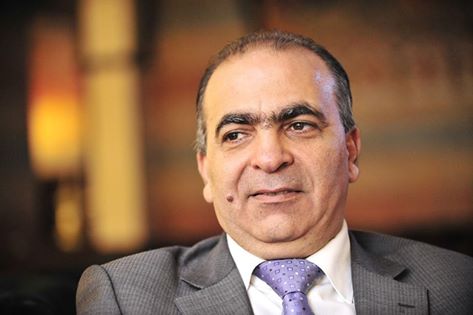In March 2011, when the first popular protests began calling for democracy, pluralism and freedom, most observers and political analysts were not pessimistic or expecting that these peaceful demonstrations in Syria would lead to the disaster which it is enduring today. But why did what happened happen, and who bears responsibility for this disaster?
Of course, the easiest answer for opposition politicians is that Assad's mafia regime and the international conspiracy bears full responsibility. And the easiest answer for those who benefit from the Assad regime's corruption — or even Syrians terrified of change and a worse alternative, especially after the emergence of oppressive fundamentalist forces in Syria — is that the Syrian opposition and the universal conspiracy against the Assad regime bear full responsibility, without attempting to analyze the event objectively and hold accountable all those who have participated in the bloody events.
In the beginning, no one disagreed that the Assad family and the mafia around it was the tyranny that the people were rebelling against in an effort to distance themselves from what had become a hereditary estate of the late Hafez al-Assad. Subsequently, it became a battle of life or death for the regime, and it would use all available means, no matter how filthy – to the extent of inciting sectarian strife, destroying the country, or mortgaging it to foreigners – in order to avoid falling or being tried for crimes which were among the worst a tyrant could carry out. Its responsibility for this disaster does not need explanation or clarification, because it is self-evident.
We also cannot neglect the negative role of international forces, which declined to lend a helping hand to 23 million Syrians who wanted to climb their way toward freedom and modernity after decades of repression, oppression, and being kept out of politics. Nor can we ignore the brutal exploitation enacted by these same forces when they entered the battle at the expense of Syrians' blood and the future of their country.
However, don’t those among opposition institutions who also blocked the leadership of this revolution bear responsibility no less than Assad and the mafia he heads in arriving at this disaster?
The many Syrians who left the revolution and preferred neutrality, immigration or searching for safe haven with their families did not do so out of hatred for their country or love for the corrupt mafia regime – which has made its corruption, crimes and treachery plain for decades — but rather out of despair that the opposition's political and military leaders were not any better.
The opposition's political institutions did not prove to Syrians that they were any less greedy for money and authority or less inclined to fall to the temptation of corruption or subordination to non-Syrians than the mafia regime institutions which the people hate for the same reasons.
The military factions which formed the de facto authority in the areas outside regime control did not differ from it except in the following respects:
They replaced camouflage or Korean military uniforms with Afghan outfits, and the saydara with black head covering. They also replaced the Baathist expression, "Hey friend" with "Hey sheikh," while confiscating the homes, torturing and killing all those who opposed the caliph or emir or sheikh. They changed the nation's prayer for the beloved president, "God give him life," to a prayer for the caliph or emir or sheikh, "God preserve him."
They changed the accusations of weakening the nation's morale during war, hostility to the socialist system, and trying to separate part of Syria and attach it to a foreign country (an accusation for Syrian Kurds), to apparent blasphemy, abandoning prayers, engaging in sin or insulting religion, and the advocates of the Islamic caliphate and its emirs, as well as those within it who demanded Shariah law be implemented by force, see democracy as a betrayal of God.
Non-religious Syrians and non-Sunni Syrians were lost when we left our previous backers to Islamize our national revolution. We lost the rest gradually after that, when even the religious people saw the behavior of those to whom authority fell to in the areas outside regime control.
What is the solution? The solution may need time and perhaps another revolution, which brings us back to the original's famous first demands, when the revolution's slogans called for the Syrian state to restore the people's freedom, preserve their dignity, and achieve their desire to belong to a Syria free of corruption, oppression, repression and political prisons — a Syria for all Syrians which respects their religions, sects and ethnicities, governed by a modern constitution which does not discriminate between them.
With a demand like this, most Syrians will be together in the trenches of freedom, and taking advantage of the bitter experience of the last five years will be able to select their friends better and build more equitable relationships. They will be able to address the world and shape opinion and decisions differently, so as not to give the wrong impression as if all they want is to exchange one tyranny for another form of tyranny, which terrifies and rejects the modern world.
Responsibility for the information and views set out in this article lies entirely with the author.


